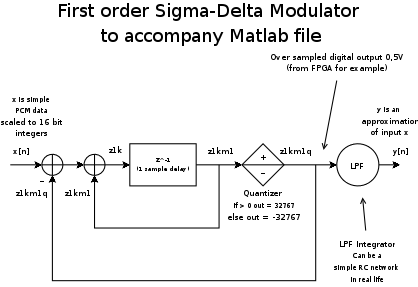Now that flash is really cheap, why use squashfs? Save some time and effort and use this in your initrd for a readonly flash file system.
A non-wordpress-butchered version is available here:
Here it is, read my notes at the top for howto actually use it:
# Local filesystem mounting -*- shell-script -*-
#
################################################################
# File:
# /scripts/local
#
# Root, or / in these notes is the initrd's (busybox) root,
# not your system's root!
#
# You need the aufs module for this to work. To do this install
# aufs on your base install, add aufs to: /etc/initramfs-tools/modules
# Now using your target kernel run:
# mkinitramfs -o initrd.img
#
# make a directory, copy an initrd to it then cd to it and:
#
# mv initrd.img initrd.img.gz
# gunzip initrd.img.gz
#
# make sure aufs exists somewhere in /lib/modules//
# After modifying local script, etc do the following in the initrd's
# root folder where /bin and /lib etc is to create a new initrd:
#
# find ./ -print | cpio -H newc -o > ../newinitrd.img
#
# Now tell grub to use this initrd for a RO root filesystem
#
# Note fstab gets hosed, if you need an fstab, make sure this
# script reflects that. I use an fstab for the default initrd for RW
# and none for RO, but you can make this script use a different one for
# RO if you want.
################################################################
# Parameter: device node to check
# Echos fstype to stdout
# Return value: indicates if an fs could be recognized
get_fstype ()
{
local FS FSTYPE FSSIZE RET
FS="${1}"
# vol_id has a more complete list of file systems,
# but fstype is more robust
eval $(fstype "${FS}" 2> /dev/null)
if [ "$FSTYPE" = "unknown" ] && [ -x /lib/udev/vol_id ]; then
FSTYPE=$(/lib/udev/vol_id -t "${FS}" 2> /dev/null)
fi
RET=$?
if [ -z "${FSTYPE}" ]; then
FSTYPE="unknown"
fi
echo "${FSTYPE}"
return ${RET}
}
# Parameter: Where to mount the filesystem
mountroot ()
{
[ "$quiet" != "y" ] && log_begin_msg "Running /scripts/local-top"
run_scripts /scripts/local-top
[ "$quiet" != "y" ] && log_end_msg
wait_for_udev 10
# If the root device hasn't shown up yet, give it a little while
# to deal with removable devices
if [ ! -e "${ROOT}" ] || ! $(get_fstype "${ROOT}" >/dev/null); then
log_begin_msg "Waiting for root file system"
# Default delay is 180s
if [ -z "${ROOTDELAY}" ]; then
slumber=180
else
slumber=${ROOTDELAY}
fi
if [ -x /sbin/usplash_write ]; then
/sbin/usplash_write "TIMEOUT ${slumber}" || true
fi
slumber=$(( ${slumber} * 10 ))
while [ ! -e "${ROOT}" ] \
|| ! $(get_fstype "${ROOT}" >/dev/null); do
/bin/sleep 0.1
slumber=$(( ${slumber} - 1 ))
[ ${slumber} -gt 0 ] || break
done
if [ ${slumber} -gt 0 ]; then
log_end_msg 0
else
log_end_msg 1 || true
fi
if [ -x /sbin/usplash_write ]; then
/sbin/usplash_write "TIMEOUT 15" || true
fi
fi
# We've given up, but we'll let the user fix matters if they can
while [ ! -e "${ROOT}" ]; do
# give hint about renamed root
case "${ROOT}" in
/dev/hd*)
suffix="${ROOT#/dev/hd}"
major="${suffix%[[:digit:]]}"
major="${major%[[:digit:]]}"
if [ -d "/sys/block/sd${major}" ]; then
echo "WARNING bootdevice may be renamed. Try root=/dev/sd${suffix}"
fi
;;
/dev/sd*)
suffix="${ROOT#/dev/sd}"
major="${suffix%[[:digit:]]}"
major="${major%[[:digit:]]}"
if [ -d "/sys/block/hd${major}" ]; then
echo "WARNING bootdevice may be renamed. Try root=/dev/hd${suffix}"
fi
;;
esac
echo "Gave up waiting for root device. Common problems:"
echo " - Boot args (cat /proc/cmdline)"
echo " - Check rootdelay= (did the system wait long enough?)"
echo " - Check root= (did the system wait for the right device?)"
echo " - Missing modules (cat /proc/modules; ls /dev)"
panic "ALERT! ${ROOT} does not exist. Dropping to a shell!"
done
# Get the root filesystem type if not set
if [ -z "${ROOTFSTYPE}" ]; then
FSTYPE=$(get_fstype "${ROOT}")
else
FSTYPE=${ROOTFSTYPE}
fi
[ "$quiet" != "y" ] && log_begin_msg "Running /scripts/local-premount"
run_scripts /scripts/local-premount
[ "$quiet" != "y" ] && log_end_msg
if [ "${readonly}" = "y" ]; then
roflag=-r
else
roflag=-w
fi
# FIXME This has no error checking
modprobe ${FSTYPE}
##########################################################################
###### Mod'd by Brian Phelps aka Electronjunkie ##########################
mkdir /root/.tmpfs
mkdir /root/.rootfs
mount -r -t ext2 /dev/sda1 /root/.rootfs
modprobe aufs
modprobe loop
mount -t tmpfs -o size=20M tmpfs /root/.tmpfs
mount -t aufs -o br:/root/.tmpfs=rw:/root/.rootfs=ro none /root/
mv /root/etc/fstab /root/etc/fstab.defunct
#########################################################################
# FIXME This has no error checking
# Mount root
[ "$quiet" != "y" ] && log_begin_msg "Running /scripts/local-bottom"
run_scripts /scripts/local-bottom
[ "$quiet" != "y" ] && log_end_msg
}
